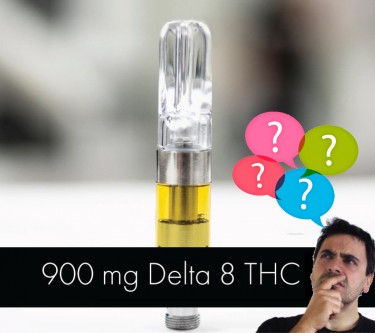Over 21 Only for Delta-8 and Delta-9 Hemp-Derived Products?

Attorneys General from 20 states along with Washington, D.C., have collaboratively urged congressional leaders to address the issue surrounding intoxicating hemp products legalized under the 2018 Farm Bill. They advocate for a precise amendment to the hemp definition, emphasizing the necessity to grant states the authority to regulate both the plant and its derivatives.
In a letter dispatched on last Wednesday, they implored federal lawmakers to resolve the ambiguity stemming from the 2018 Farm Bill. This ambiguity has resulted in the widespread availability of intoxicating hemp products nationwide, presenting significant challenges for states and localities in managing consequent health and safety concerns. The attorneys general emphasized the urgent need for Congress to tackle this issue, underscoring the risks associated with the current policy.
Led by Indiana Attorney General Todd Rokita (R) and Arkansas Attorney General Tim Griffen (R), the letter was addressed to key legislators on the House and Senate agriculture committees. It garnered bipartisan support, with attorneys general from California, Colorado, Connecticut, Georgia, Hawaii, Iowa, Kansas, Maryland, Minnesota, Missouri, North Carolina, North Dakota, Oregon, Pennsylvania, South Dakota, Tennessee, Virginia, Washington State, and Washington, D.C., endorsing it.
Addressing Ambiguity and Exploitation: The Urgency for Legislative Clarification
Upon its enactment, the 2018 Farm Bill was believed to be clear in its objectives: to reintroduce industrial hemp as an agricultural commodity while upholding existing federal bans on cannabis products and their usage, states the letter.
However, the letter contends that “nefarious actors have taken advantage” of this reform, leading to a situation where “our states have been inundated with products that essentially amount to a potent form of cannabis, often disguised as appealing candies targeted at youth and children—exhibiting alarming levels of potency, lacking regulation, oversight, and offering limited means for our authorities to control them.”
The coalition advocates for “critical enhancements to the legislation” to “eliminate any potential federal loophole for intoxicating hemp,” although the specifics of such revisions are not outlined in the letter.
In a newsletter discussing the new correspondence, the bipartisan nonprofit Attorney General Alliance pointed out that the current legislation excludes hemp derivatives and extracts—an aspect that could be reconsidered.
“The loophole in the 2018 Farm Bill’s hemp definition, which encompasses all derivatives, extracts, and cannabinoids of the cannabis plant, has given rise to a murky market for these products, rapidly growing into a $28 billion industry,” the group remarked. “Despite often matching or surpassing the potency of state-regulated cannabis products, they are manufactured without regulatory supervision, packaged as conventional non-cannabis food items, and retailed in unlicensed venues such as gas stations and convenience stores.”
State-Level Responses and Calls for Federal Action: Protecting Youth and Ensuring Regulation
In states where marijuana is legalized, products typically undergo testing for potency and contaminants, with laws often prohibiting advertising or products targeting youth. However, only a few states have implemented measures to independently regulate intoxicating hemp products, including Minnesota, Massachusetts, Florida, and South Dakota.
California Attorney General Rob Bonta (D), a signatory of the recent letter, emphasized in a press release on Wednesday the importance of safeguarding children. He criticized the unintended consequences of the 2018 Farm Bill, which created a loophole leading to the proliferation of products, often containing synthesized cannabinoids, more potent than legally regulated cannabis. Bonta highlighted California’s prohibition of intoxicating cannabinoids in hemp products, whether natural or synthetic, particularly those designed to appeal to young people.
Although hemp itself contains less than 0.3 per cent THC according to the federal definition, other cannabinoids in hemp can be chemically altered into psychoactive compounds, including THC.
Congressional researchers cautioned in November that conflicting policy priorities among industry stakeholders could complicate updating the federal farm bill.
“These interest groups often have differing priorities, which may complicate U.S. hemp policymaking,” the Congressional Research Service (CRS) report stated. “Moreover, the interests of these groups often span the use of hemp as an industrial input, as a food ingredient, and as a dietary supplement ingredient.”
The CRS report also mentioned several recent hemp bills that federal lawmakers may integrate into broader agricultural legislation.
One bipartisan bill filed last March aims to eliminate what critics call a “discriminatory” federal policy barring individuals with prior felony drug convictions from owning or operating legal hemp businesses. Another bipartisan proposal seeks to reduce regulations on farmers cultivating industrial hemp for non-extraction purposes.
Beyond Intoxicating Hemp: Navigating Regulatory Pathways for CBD and Dietary Supplements
Of paramount concern for various hemp stakeholders and lawmakers is the quest to establish a regulatory framework enabling the legal marketing of hemp products such as CBD oil as dietary supplements and in the food industry. The Food and Drug Administration (FDA) holds regulatory authority over this matter. However, at the outset of last year, the agency stated it lacked a clear pathway to facilitate this and proposed collaborating with Congress to find a resolution.
As a result, in July, Senators Ron Wyden (D-OR), Rand Paul (R-KY), and Jeff Merkley (D-OR), along with Representative Earl Blumenauer (D-OR), submitted legislation with the goal of removing the regulatory obstacles that the FDA has identified as impeding the marketing of CBD.
Politico first revealed the recent letter, which was sent to Ranking Member Representative David Scott, Chair of the House Agriculture Committee Representative Glenn Thompson, and Ranking Member Senator Debbie Stabenow, Chair of the Senate Agriculture, Nutrition, and Forestry Committee, Ranking Member John Boozman.
Bottom Line
The collective appeal by Attorneys General from numerous states and Washington, D.C., highlights the urgent necessity for federal intervention in regulating intoxicating hemp products. Their advocacy for legislative precision and heightened oversight mirrors mounting apprehensions surrounding public health and safety amidst the widespread availability of these items. As discussions persist across state and federal spheres, addressing these concerns remains imperative to establish effective governance, safeguard consumers, and mitigate potential risks associated with unregulated intoxicating hemp products. Collaborative efforts between state and federal authorities are crucial in navigating this complex landscape, ensuring comprehensive regulation, and upholding the integrity of hemp-derived products within legal frameworks.
WHAT IS DELTA-8 THC AND IS IT LEGAL?
WHAT IS DELTA-8 THC AND IS IT LEGAL OR NOT? READ MORE!




